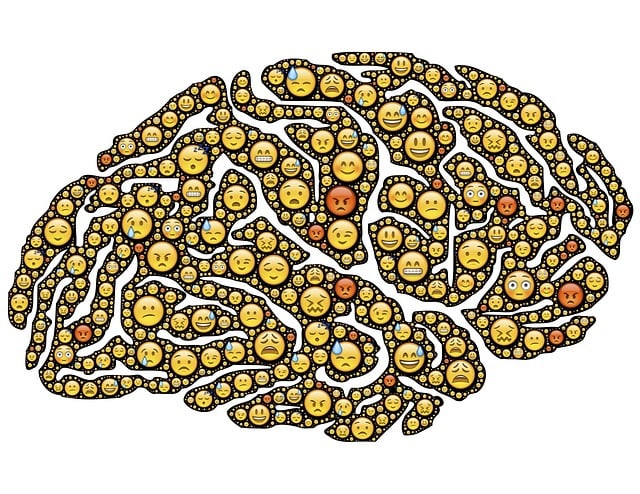Northglenn Developmental Disability Therapy (NDDT) prioritizes client safety through a multi-faceted risk assessment and harm minimization strategy. They systematically identify psychological, social, and environmental risks using evidence-based practices like Self-Care Practices and Trauma Support Services. This approach includes in-depth client assessments, stakeholder consultations, data analysis, and proactive planning for mitigation. NDDT's holistic strategy encompasses Stress Management Workshops to build resilience. Their comprehensive harm minimization plans focus on tailored solutions like structured routines and emotional intelligence training, fostering autonomy and improving self-esteem. Regular monitoring ensures immediate adjustments to safety protocols, promoting well-being and session effectiveness. This model showcases exceptional results in mental health, life skills, and overall well-being for individuals with developmental disabilities, offering valuable insights for organizations aiming to create more inclusive and supportive environments.
Risk assessment and harm minimization planning are vital components of ensuring safety in therapy, especially at Northglenn Developmental Disability Therapy. This comprehensive guide explores these critical aspects through several key sections. We begin by understanding the foundational principles of risk assessment in therapy settings. Next, we delve into identifying potential harms, using a thorough approach demonstrated by Northglenn’s practices. Strategies for developing minimization plans are then presented, followed by implementation and monitoring strategies. Finally, case studies highlight successful harm minimization stories within the context of Northglenn Developmental Disability Therapy.
- Understanding Risk Assessment: A Foundation for Safety in Therapy
- Identifying Potential Harms: A Comprehensive Approach at Northglenn Developmental Disability Therapy
- Developing a Minimization Plan: Strategies and Interventions
- Implementing and Monitoring: Ensuring Continuous Safety in Therapy Sessions
- Case Studies: Success Stories of Harm Minimization in Practice
Understanding Risk Assessment: A Foundation for Safety in Therapy

Risk assessment forms the cornerstone of safety in Northglenn Developmental Disability Therapy. It involves a thorough examination of potential hazards and their likelihood of causing harm, enabling therapists to implement targeted interventions. By critically evaluating various factors, such as client history, environmental risks, and potential triggers, therapists can anticipate and mitigate dangers before they escalate.
This proactive approach, grounded in evidence-based practices like Self-Care Practices and Trauma Support Services, ensures a secure therapeutic environment. Moreover, it fosters Healthcare Provider Cultural Competency Training, allowing professionals to address unique needs effectively. Through diligent risk assessment, Northglenn Developmental Disability Therapy can deliver high-quality care while prioritizing client safety at every step.
Identifying Potential Harms: A Comprehensive Approach at Northglenn Developmental Disability Therapy

At Northglenn Developmental Disability Therapy, identifying potential harms goes beyond a superficial scan. It’s a comprehensive approach that involves meticulously mapping out every possible risk factor associated with individuals receiving therapy. This includes psychological, social, and environmental stressors that could exacerbate existing conditions or trigger new challenges. By employing this methodical strategy, the organization ensures that no harm goes unnoticed or unaddressed.
This meticulous process incorporates various tools, such as in-depth client assessments, stakeholder consultations, and data analysis from past incidents. It also involves proactive planning for risk mitigation. For instance, Northglenn Developmental Disability Therapy organizes Stress Management Workshops to build resilience and anxiety relief strategies among clients. This holistic approach not only identifies potential harms but equips individuals with the tools to navigate challenges, fostering a more supportive and nurturing therapy environment.
Developing a Minimization Plan: Strategies and Interventions

Developing a harm minimization plan is a proactive step toward ensuring safety and well-being, particularly for individuals with developmental disabilities, as exemplified by Northglenn Developmental Disability Therapy. This process involves identifying potential risks and implementing strategies to mitigate their impact. Strategies can range from structured routines and clear communication protocols to the integration of self-care practices tailored to individual needs. For instance, encouraging regular exercise, healthy eating habits, and consistent sleep patterns can significantly enhance emotional regulation and improve overall self-esteem.
Interventions may also include social skills training, stress management techniques, and crisis intervention plans. By fostering emotional intelligence and equipping individuals with tools for coping, these interventions empower them to navigate challenges more effectively. This proactive approach not only minimizes potential harm but also promotes a sense of autonomy and empowerment, contributing to a higher quality of life.
Implementing and Monitoring: Ensuring Continuous Safety in Therapy Sessions

Implementing and monitoring safety protocols is an integral part of responsible Northglenn Developmental Disability Therapy practices. Therapists must create a structured environment that continuously promotes well-being, ensuring each session is secure and beneficial. This involves proactive risk assessment, where potential hazards or triggers are identified and managed. By anticipating challenges and implementing strategies to mitigate risks, therapists can foster a safe space for clients to explore and grow.
Regular monitoring during therapy sessions allows for immediate adjustments when issues arise. It involves keeping a keen eye on client progress, emotional states, and any signs of distress. This proactive approach to safety not only prevents harm but also encourages the development of inner strength and resilience. By prioritizing burnout prevention and mental wellness through these practices, therapists can enhance the overall effectiveness of their sessions, contributing to successful outcomes in the Northglenn Developmental Disability Therapy context.
Case Studies: Success Stories of Harm Minimization in Practice

Northglenn Developmental Disability Therapy (NDDT) stands out as a shining example of successful harm minimization in practice. Through implementing compassionate cultivation practices and emotional regulation strategies, NDDT has achieved remarkable outcomes for individuals with developmental disabilities. By focusing on burnout prevention, they’ve created an environment that not only supports but also empowers those under their care. This holistic approach has led to improved mental health, increased life skills, and enhanced overall well-being.
The case study of NDDT illustrates how a structured yet empathetic framework can significantly reduce risks and promote positive change. Their methods have been proven effective in various scenarios, demonstrating the versatility of harm minimization strategies. By drawing on these success stories, other organizations can learn valuable lessons and adapt similar practices to suit their unique populations, ultimately fostering more supportive and inclusive settings.
Risk assessment and harm minimization planning are essential components of safe and effective therapy, particularly at Northglenn Developmental Disability Therapy. By understanding potential risks, identifying harms, developing comprehensive minimization strategies, and continuously monitoring these efforts, therapists can create a secure environment for clients. The case studies presented in this article serve as compelling success stories, demonstrating the tangible benefits of implementing robust harm minimization practices. Through dedicated assessment, strategic planning, and consistent evaluation, Northglenn Developmental Disability Therapy sets a standard for ensuring client safety and fostering positive outcomes.








